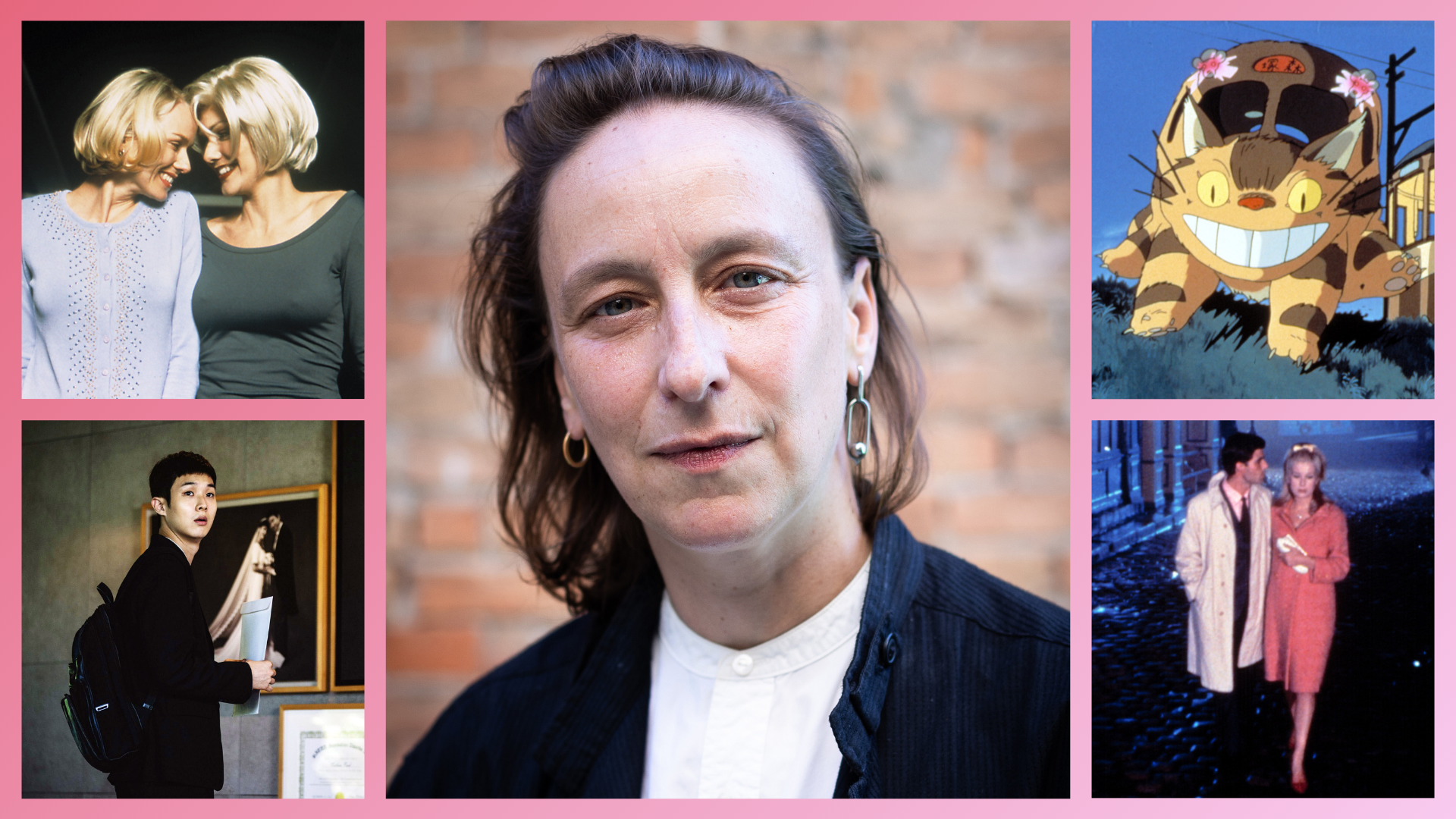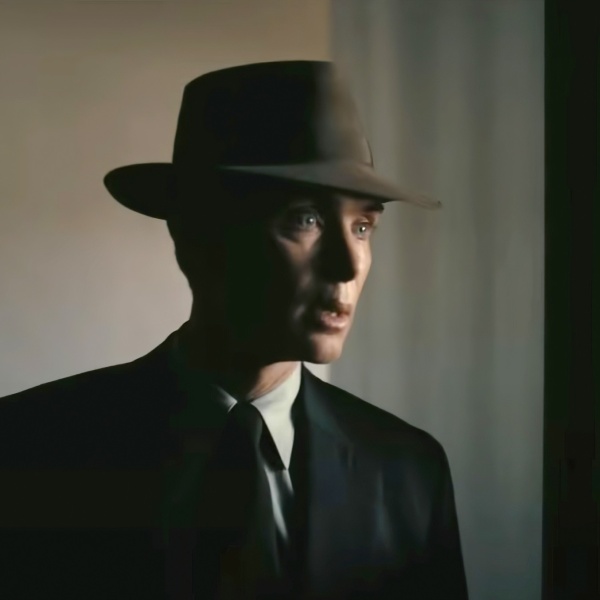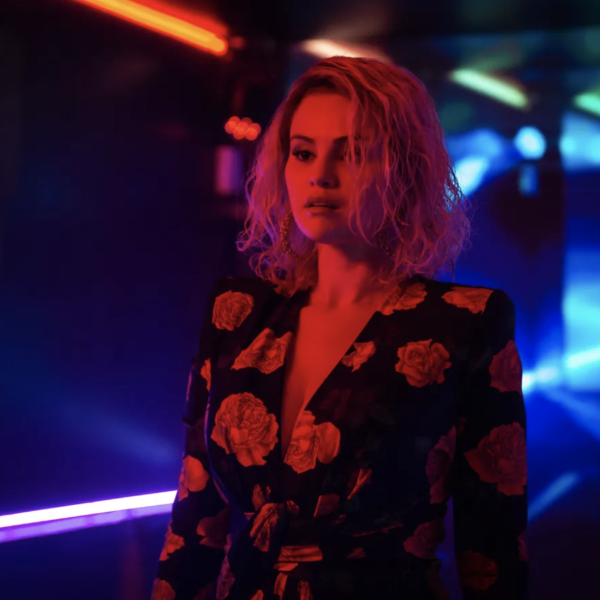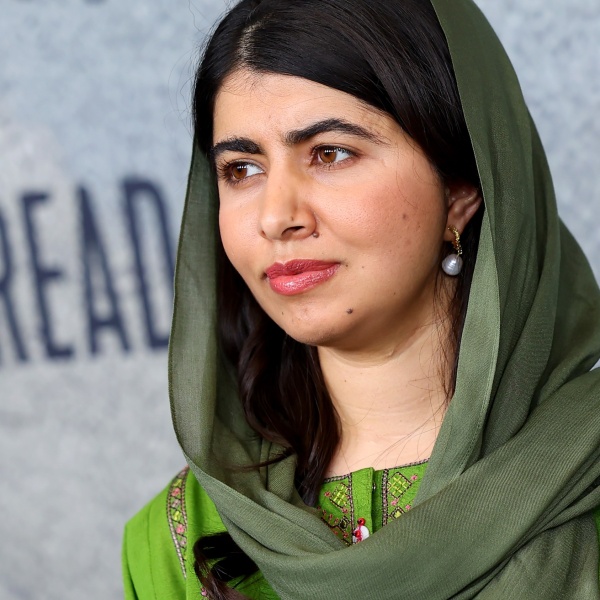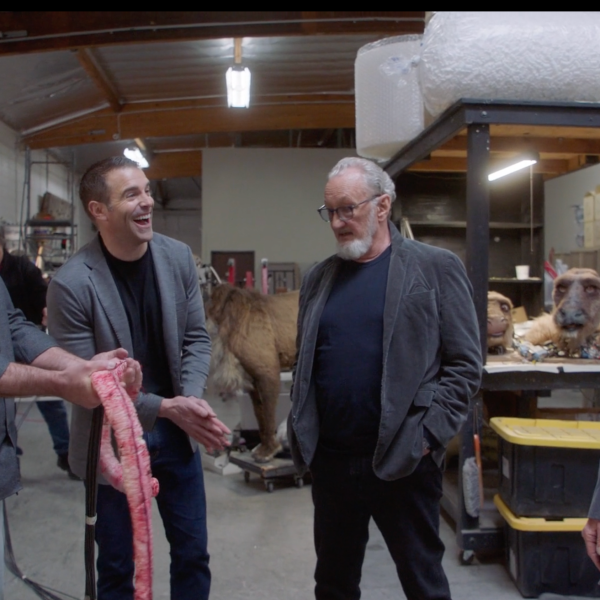“Portrait of a Lady on Fire” was Céline Sciamma’s big breakout moment, but the French director was clearly a major talent in the making from the very start of her career.
In 2007, the then 29-year-old filmmaker premiered her first feature at Cannes Film Festival, after writing the movie’s script during her final year at the prestigious film school La Fémis. The story of three teen girls awakening to their sexualities during a single summer, “Water Lillies” featured Sciamma’s future romantic partner and collaborator Adèle Haenel, and established the type of female-focused and queer stories she would spend her entire career bringing to the screen.
Following the positive reception of “Water Lillies,” Sciamma chased it with 2011’s “Tomboy,” a sharply observed coming-of-age about a 10-year-old exploring their gender identity. 2014’s “Girlhood,” about four Black teen girls living in Paris, brought Sciamma further attention, thanks to a much talked about scene involving Rihanna’s hit “Diamonds.” But it wasn’t until “Portrait of a Lady on Fire” premiered in 2019 that broader American audiences took notice of her work.
A gorgeous and seductive historical romance starring Haenel and Noémie Merlant as an aristocrat and a painter who engage in a passionate love affair, “Portrait of a Lady on Fire” was received with rapturous acclaim as an instant lesbian classic, and has since become regarded as one of the best films of the century, even ranking at no. 30 in the 2022 edition of Sight & Sound’s prestigious greatest films poll. Sciamma followed up “Portrait of a Lady” in 2021 with the smaller but still just as masterful “Petite Maman,” a wistful movie about a little girl who discovers a way to meet and play with her mother when she was her age.
Although Sciamma is beloved by the art-house crowd, the director has as much appreciation for mainstream Hollywood films as she does for auteur cinema. She’s an avid television watcher who has expressed her appreciation for shows like “I May Destroy You,” “The Good Fight,” and even the MCU’s “Wandavision.” The films she has cited as inspirations for her work include family movies she grew up with during the ’80s, such as “Back to the Future,” “E.T. The Extra-Terrestrial,” and “Big.” She’s a massive fan of animated filmmaking in particular, praising features like “My Neighbor Totoro,” “The Mitchells vs. the Machines,” and “Turning Red.” Beyond those widely recognizable favorites, some of the directors who she considers foundational and inspirational for her filmography include David Lynch and Chantal Akerman, with their films “Twin Peaks: Fire Walk With Me” and “Jeanne Dielman” serving as touchstones in her work.
As of now, Sciamma doesn’t have a feature directorial effort on the horizon. Although, she collaborated with her “Portrait of a Lady on Fire” star Merlant on a script for Merlant’s feature “The Balconettes,” and premiered a short film “This Is How a Child Becomes a Poet” at the Venice Days festival this summer. While we wait impatiently for a new Sciamma classic to reveal itself, take a look at the films that shaped her as a filmmaker. Here’s a look at 10 of Sciamma’s favorite movies, compiled from interviews over the course of the director’s career.
-
“Parasite” (dir. Bong Joon-Ho, 2019)

Image Credit: Neon During the 2020 Oscars season, Sciamma and Bong Joon-Ho both frequently and publicly praised each other’s projects: Sciamma’s “Portrait of a Lady on Fire,” and Bong’s “Parasite,” the South Korean director’s Oscar-winning film about a poor family who lies their way into employment by a wealthy family. Sciamma said in an interview with The Guardian that she congratulated Bong after “Parasite’s” SAG award win.
“I texted: ‘I feel like I won, too’ because we’re on the same team,” Sciamma said. “I have nothing to do with [Parasite’s awards season wins], but it’s a win for an idea of cinema we share.”
-
“Twin Peaks: Fire Walk With Me” (dir. David Lynch, 1992)

Image Credit: Lynch-Frost/Kobal/REX/Shutterstock One of Sciamma’s most often-cited influences is surrealist master David Lynch, and the first film she saw from the legendary director was “Twin Peaks: Fire Walk With Me,” his 1992 prequel to the influential TV series. Although “Fire Walk With Me” is well-regarded now, it was panned at the time of its release. But Sciamma, who saw the film before the TV show, loved it immediately, and described the experience of seeing the movie in theaters as formative for her as an artist.
“When I got out of the room the atmosphere had changed,” Sciamma wrote in a Sight & Sound essay from 2020. “This is important to me: cinema does not exist in just a mental place, it’s a way of life.
-
“Mulholland Drive” (Dir. David Lynch, 2001)

Image Credit: Universal/Courtesy Everett Collection Probably David Lynch’s most acclaimed film, “Mulholland Drive” tells the love story between two women, played by Naomi Watts and Laura Harring, against a surreal and complicated vision of Los Angeles. Speaking to IndieWire in 2020, Sciamma explained that she had the film and its relationship with time in mind while she was working on her own romantic masterpiece “Portrait of a Lady on Fire.”
“I was looking at what love stories do in cinema and how their shape actually proposes a politic of love or philosophy of love,” Sciamma said. “David Lynch found the right structure, which is so mysterious to everybody, but it’s simple, he’s always doing really simple things, actually. It says, ‘I love you is always something you say in the past.’ These two women meet and then they are in a bed and you’re like, ‘What?’ And then one says, ‘I think I’m in love with you.’ And you’re like, ‘Already?’ It’s because everything has already happened.”
-
“Titanic” (dir. James Cameron, 1997)

Image Credit: ©20thCentFox/Courtesy Everett Collection In 2020, Sciamma went viral after she explained to Vox that “Titanic” — James Cameron’s historical blockbuster — is, despite being a straight romance, “totally queer,” and was on her mind during the filming of “Portrait of a Lady on Fire.”
“Leonardo DiCaprio was totally androgynous at the time. DiCaprio and Kate Winslet were both not known — not stars — so there was no power dynamic between them,” Sciamma told Vox.” “Like, if you look at the sex scene in ‘Titanic,’ she’s on top. He’s the one who’s being totally fragile and insecure. I think it was a huge success because it’s a love story with equality and with emancipation … I thought a lot about ‘Titanic’ because it’s also the present of a love story and the memory of a love story. A successful love story should not be about eternal possession. No, it should be about emancipation.”
-
“My Neighbor Totoro” (Dir. Hayao Miyazaki, 1988)

Image Credit: ©50th Street Films/Courtesy Everett Collection Sciamma has never directed an animated feature (although she co-wrote the 2016 stop-motion film “My Life as a Courgette”), but she’s a massive fan of the medium, and particularly the work of Japanese anime company Studio Ghibli. In several interviews during the release of 2021’s Petite Maman, Sciamma described the film as heavily inspired by the tone of Ghibli co-founder Hayou Miyazaki’s films, and particularly how he wrote the protagonists of his 1988 classic “My Neighbor Totoro,” which follows two little girls who befriend forests spirits around their home.
“These are tales that believe in the power of cinema and in kids, as an audience,” Sciamma said in an interview with The Hollywood Reporter.
-
“Turning Red” (dir. Domee Shi, 2022)

Image Credit: ©Walt Disney Co./Courtesy Everett Collection “Petite Maman” came out in the U.S. at around the same the Pixar film “Turning Red,” about a Chinese-Canadian girl who battles a family curse and her complicated relationship with her mother, and holds similar ideas about daughters meeting their mothers as children. Sciamma, rather than feeling any sense of competition towards the film, was delighted by the similarities and praised Domee Shi’s feature directorial debut.
“It’s a crazy film, an amazing film, a beautiful film,” Sciamma told Entertainment Weekly. “I love it. I’ve watched it three times already. I thought, when did they start writing this? It wasn’t competition around ideas or whatever, it was mostly about being enthusiastic. It’s such a relief not to be alone. Who wants to be first? No one. I don’t want to be the first of anything. I want to be with others.”
-
“Big” (dir. Penny Marshall, 1988)

Image Credit: ©20thCentFox/Courtesy Everett Collection Like “Petite Maman,” Penny Marshall’s 1988 comedy “Big” hinges on magical realism and age-shifting, telling the story of a 12-year-old boy who aburptly transforms into an adult. In an interview with Roger Ebert.com, Sciamma spoke about how the film, which appealed to children but still respected them, inspired her while making “Petite Maman.”
“I was thinking more about the boldness and innovative radical nature of ‘Big,’” Sciamma said. “It isn’t a film about a kid going to see his parents as kids—it is about a kid falling in love with a woman. The last shot of that film, when you think about it, is incredible. I remember how it was both very fun and very troubling for a kid when I saw it in the cinema. I remember that I felt really respected as a kid watching that film and I wanted to give that same feeling to the kids from 2020.”
-
“E.T. The Extra-Terrestrial” (Dir. Steven Spielberg, 1982)

Image Credit: ©Universal/Courtesy Everett Collection When asked by Letterboxd in 2020 what she considers to be the most romantic film she’s ever seen, Sciamma had a surprising answer: “E.T. The Extra-Terrestrial,” Steven Spielberg’s 1982 sci-fi heartbreaker about the friendship between an ordinary boy and a mysterious alien.
“This is a great love story for me, and one of the greatest endings in terms of how a relationship ends: ‘E.T. ‘has this idea that the breakup between the two characters is… they want the same thing,” Sciamma explained. “And that’s why they’re breaking up, because one is saying “’ome’ and one is saying ‘stay,’ which I think is the most heartbreaking breakup, not being a breakup.”
-
“The Umbrellas of Cherbourg” (Dir. Jacques Demy, 1964)

Image Credit: Courtesy Everett Collection One of the most beloved films in French cinema, “The Umbrellas of Cherbourg” is a musical opera about the doomed relationship between two young lovers. In her Letterboxd interview, Sciamma spoke about how the film, and the works of Jacques Demy in general, helped her understand the art of cinema as a child.
“The film that made me understand filmmaking, mise-en-scène, was ‘The Umbrellas of Cherbourg,’” Sciamma told Letterboxd. “Definitely as a young kid—I was 12 years old—I found out that, okay, there’s somebody behind this with a vision.”
-
“Jeanne Dielman, 23, Quai Du Commerce, 1080 Bruxelles” (Dir. Chantal Akerman, 1975)

Image Credit: Everett Collection / Everett Collection The newly minted best film of all time according to Sight & Sound Magazine, Chantal Akerman’s “Jeanne Dielman” is an intimate epic, starring Delphine Seyrig as an ordinary woman going through a daily routine that slowly begins to collapse. In her Letterboxd interview, Sciamma called the film “radical” and a movie that “gives me faith in cinema.”
“I’m trying to watch radical films that renew your faith in cinema,” Sciamma said. “I mean, they’re major pieces of art, but just give this feeling that you can be radical, you can be bold, and to get this excitement about, really, the language of cinema.”
